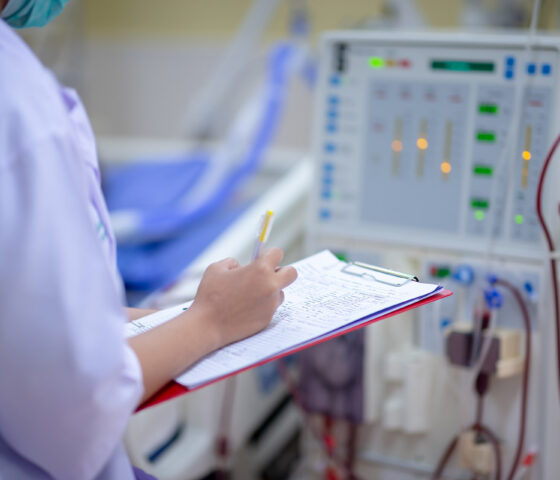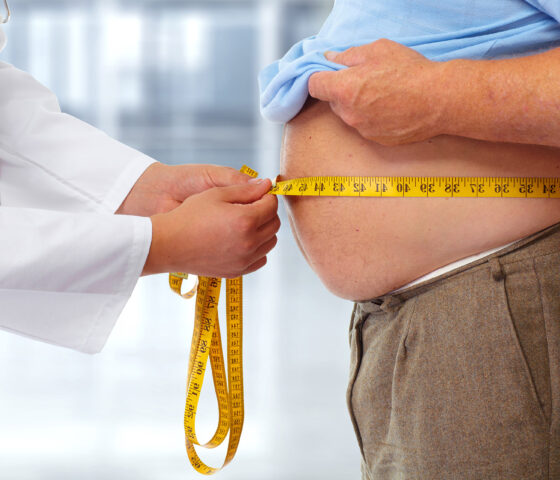Varicose veins can be a source of discomfort and self-consciousness for many individuals. Fortunately, modern advancements in vein treatment have made procedures like Micro Phlebectomy an effective and minimally invasive option.
At Vein Health Clinic we specialise in providing Micro Phlebectomy treatments in Florida, that offer significant benefits for patients seeking relief from varicose veins.
Feel free to contact us to schedule an appointment to discuss this in more detail.

What is Micro Phlebectomy for Varicose Veins?
Micro Phlebectomy, also known as ambulatory phlebectomy or stab avulsion, is a state-of-the-art surgical technique designed to treat varicose veins.
During the vein removal procedure, tiny incisions are made near the affected veins, and the veins are gently removed using specialised tools resembling a tiny hook. The incisions are so small that stitches are not required, resulting in minimal scarring.
Who Requires Micro Phlebectomy
Micro Phlebectomy is an ideal solution for individuals who suffer from symptoms such ass, such as pain, swelling, or aching, or bulging veins and desire improvement in the appearance of their legs.
This procedure is particularly effective for patients with large varicose veins close to the skin’s surface.
Benefits of Micro Phlebectomy
There are several benefits that can be experienced with a micro phlebectomy which include:
- Minimally Invasive: The procedure involves only small incisions, minimizing tissue trauma and promoting a quicker recovery.
- Effective Removal: Micro Phlebectomy allows for the precise removal of superficial varicose veins, providing both symptomatic relief and improved cosmetic appearance.
- Short Recovery Time: Compared to traditional vein-stripping surgery, Micro Phlebectomy offers a shorter recovery period, allowing patients to resume their normal activities sooner.
- Minimal Scarring: The tiny incisions made during Micro Phlebectomy result in minimal scarring, enhancing the aesthetic outcome and boosting patient confidence.
- Improved Circulation: By removing the problematic varicose veins, Micro Phlebectomy promotes healthier blood flow and overall vein health.

Risks of Micro Phlebectomy
While Micro Phlebectomy is generally safe, like any medical procedure, it carries some risks. Potential risks may include:
- Temporary bruising: After the procedure, it is common to experience bruising around the treated area. The bruising typically resolves on its own within a few weeks as the body heals.
- Swelling and infection: Swelling is a common side effect following Micro Phlebectomy. It usually subsides within a few days to weeks. Although rare, there is a slight risk of infection at the incision sites. It is important to follow post-operative care instructions, including keeping the incisions clean and taking prescribed antibiotics if necessary, to minimize this risk.
- Rare instances of nerve damage: In very rare cases, Micro Phlebectomy may cause damage to nearby nerves. This can lead to temporary or, exceptionally, permanent numbness or altered sensation in the treated area. However, skilled and experienced vein specialists take great care to minimize the risk of nerve injury during the procedure.
It is important to note that the occurrence of these risks is relatively low, and most individuals who undergo Micro Phlebectomy experience successful outcomes with minimal complications.
Prior to the procedure, our doctors will thoroughly assess your condition, discuss potential risks, and provide you with personalized information and recommendations to mitigate these risks and ensure the best possible results.
- 31 March 2021
Dialysis: Here’s What You Need to Know
When patients with advanced kidney disease learn they need dialysis, Dr. Obinna Nwobi and the team at Vein Health Clinics are the first to join their treatment […]
- 1 February 2020
The Link Between Obesity and PAD
There’s no doubt that your risk of developing peripheral artery disease (PAD) is significantly higher if you’re obese. Additionally, obese patients […]
- 1 January 2020
Resolve to Banish Unsightly Veins this Year
Do you think about getting rid of unsightly veins but keep putting it off? Maybe you think it’s just a […]
- 31 March 2021
Dialysis: Here’s What You Need to Know
When patients with advanced kidney disease learn they need dialysis, Dr. Obinna Nwobi and the team at Vein Health Clinics are the first to join their treatment […]
- 1 February 2020
The Link Between Obesity and PAD
There’s no doubt that your risk of developing peripheral artery disease (PAD) is significantly higher if you’re obese. Additionally, obese patients […]
- 1 January 2020
Resolve to Banish Unsightly Veins this Year
Do you think about getting rid of unsightly veins but keep putting it off? Maybe you think it’s just a […]
Micro Phlebectomy Procedure
A Micro Phlebectomy procedure is a minimally invasive surgical technique used to remove superficial varicose veins. Here is how the procedure is typically performed:
- Preparation: Before the procedure, you will be positioned comfortably on an examination table. The area to be treated will be cleaned and sterilized.
- Local Anesthesia: Your vein specialist will administer a local anesthetic to numb the area where the varicose veins will be treated. This ensures that you remain comfortable throughout the procedure.
- Incisions: Using a small needle or a scalpel, your vein specialist will make tiny incisions, typically about 2-3 mm in size, along the course of the varicose veins. These incisions are strategically placed to minimize scarring and maximize access to the affected veins.
- Extraction of Varicose Veins: Through the incisions, specialized instruments are used to gently remove the varicose veins. The veins are carefully grasped and extracted from the leg, segment by segment. The process is precise and targeted, specifically addressing the affected veins while preserving surrounding healthy tissue.
- Completion and Dressing: Once all targeted varicose veins have been removed, the incisions are typically left to heal naturally without the need for stitches. Sterile dressings or adhesive strips may be applied to cover the incision sites.
The duration of the Micro Phlebectomy procedure will depend on the number and size of the varicose veins being treated. The procedure is usually well-tolerated, and most patients experience minimal discomfort.
It is important to note that Micro Phlebectomy is performed on an outpatient procedure, meaning you can return home on the same day of the procedure.
Pre-op:
Before undergoing a Micro Phlebectomy procedure, there are a few important pre-operative steps to ensure a safe and successful treatment:
- Initial Consultation: You will have an initial consultation with your vein specialist to discuss your medical history, symptoms, and concerns related to varicose veins. This is an opportunity for you to ask questions and address any doubts you may have.
- Evaluation and Diagnostic Tests: Your vein specialist will carefully evaluate your condition by conducting a physical examination and may recommend additional diagnostic tests, such as ultrasound, to assess the extent and severity of your varicose veins.
- Treatment Plan: Based on the evaluation results, your vein specialist will develop a personalized treatment plan tailored to your specific needs. This may include Micro Phlebectomy as a standalone procedure or in combination with other treatments, depending on your condition.
Post-op:
Following the Micro Phlebectomy procedure, there are specific post-operative care instructions to promote healing and minimize complications:
- Compression Garments: You will be advised to wear compression stockings or bandages to apply pressure to the treated area. Compression garments help reduce swelling and promote blood circulation, aiding in the healing process.
- Wound Care: Proper wound care is crucial to prevent infection and optimize healing. Your vein specialist will provide detailed instructions on how to clean and dress the incision sites. It is essential to follow these instructions meticulously to ensure the best possible outcome.
Recovery:
Recovery from Micro Phlebectomy is typically relatively swift, allowing patients to resume their daily activities with minimal disruption. Here are some key aspects of the recovery period:
- Activity Restrictions: While you can usually resume light activities immediately after the procedure, you may be advised to avoid strenuous exercise or heavy lifting for a specified period. It is essential to follow the guidance provided by your vein specialist to support proper healing.
- Follow-up Visits: Your vein specialist will schedule follow-up visits to monitor your progress, remove any sutures if necessary, and ensure that your recovery is proceeding as expected. These visits are an opportunity for you to discuss any concerns or ask questions regarding your healing process.
By adhering to the pre-op and post-op instructions provided by your vein specialist, you can help ensure a smooth recovery and maximize the effectiveness of the Micro Phlebectomy procedure in treating your varicose veins.
It is important to communicate any unusual symptoms or concerns with your vein specialist during the recovery period.
Micro Phlebectomy Cost
The cost of Micro Phlebectomy can vary depending on factors such as the extent of treatment required, geographical location, and insurance coverage.
At Vein Health Clinic, we understand that affordability is a concern for many patients, and we provide detailed information regarding insurance coverage and financing options to help make treatment accessible.
After your initial consultation, we can give you an accurate estimate for the treatment as well as any potential health insurance reimbursements.
Please reach out to us to learn more about pricing.
- 31 March 2021
Dialysis: Here’s What You Need to Know
When patients with advanced kidney disease learn they need dialysis, Dr. Obinna Nwobi and the team at Vein Health Clinics are the first to join their treatment […]
- 1 February 2020
The Link Between Obesity and PAD
There’s no doubt that your risk of developing peripheral artery disease (PAD) is significantly higher if you’re obese. Additionally, obese patients […]
- 1 January 2020
Resolve to Banish Unsightly Veins this Year
Do you think about getting rid of unsightly veins but keep putting it off? Maybe you think it’s just a […]
- 31 March 2021
Dialysis: Here’s What You Need to Know
When patients with advanced kidney disease learn they need dialysis, Dr. Obinna Nwobi and the team at Vein Health Clinics are the first to join their treatment […]
- 1 February 2020
The Link Between Obesity and PAD
There’s no doubt that your risk of developing peripheral artery disease (PAD) is significantly higher if you’re obese. Additionally, obese patients […]
- 1 January 2020
Resolve to Banish Unsightly Veins this Year
Do you think about getting rid of unsightly veins but keep putting it off? Maybe you think it’s just a […]
At Vein Health Clinic, we are proud to have Dr Obinna Nwobi as our leading specialist. With his expertise and extensive experience in performing Micro Phlebectomy, you can trust that you are receiving the highest level of care.
Our clinic is committed to providing comprehensive and personalized care, utilizing advanced techniques and state-of-the-art equipment to ensure optimal results for our patients.
Meet Our Specialist
Dr Obinna Nwobi
Dr Nwobi brings a wealth of knowledge and expertise to our practice. He earned a Master’s degree in Public Health from the renowned Johns Hopkins Bloomberg School of Public Health, focusing on healthcare management and international health.
Following this, he obtained his medical degree from the University of Tennessee College of Medicine

How to Schedule a Consultation
For more information on our vein care services and the cost of each service, or to schedule a consultation at our clinic, please contact us at one of the following:
- Call us on 877-817-8346
- Book online
Working Hours
- Monday to Saturday: 8 am – 5 pm
- Sunday: Closed
Frequently Asked Questions
If you require more information on spider veins treatment, please read our most frequently asked questions:
This information is not intended to be used for diagnosis or treatment. It is aimed at presenting a perspective only and is not a substitute for a prescription. Anyone experiencing a medical condition should consult their doctor.



